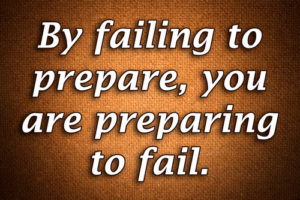
With exam time approaching, many students find themselves stressed – more than usual, even. Is it the pressure to do well? Do youth feel a burden placed by society (teachers, parents, et al)? Perhaps its in our competitive nature as human beings? Whatever the reasons, a clear link exists between exams and anxiety. We’ll delve into why that is, and what can be done to combat that anxiety and perform better — not a guarantee to score better, of course, but to be able to function more ‘normally’ on exam day and in the hours and days leading up to it.
What Causes Exam Anxiety?
“I love writing exams,” said nobody, ever. Given a better alternative – which is pretty much anything short of root canal – we’d all probably rather be doing something other than sitting for an exam. Tests and exams are a part of academic reality, however, a necessary evil that we’ve all endured to one degree or another. And while exams are universally loathed, some people do better with exams than do others. That of course is true academically and statistically, but we’re talking about this in another sense: psychologically. Some of the most intelligent students, who may have studied more hours than most, struggle with exams – sometimes desperately. The condition has come to be known as “exam anxiety.”
Hardly a new phenomenon, we can at least be optimistic that this form of anxiety is more widely recognized nowadays than it once was. In previous eras, students with exam anxiety (a.k.a. “test anxiety” etc.) might have been destined for failure, both literally (on the exam) and figuratively; their grades were lower, some dropped out of school while others struggled and missed out on good universities and better career paths. But before we go on with that, let’s explore the physiological and psychological components that go into exam anxiety.

Starting with the source of the anxiety, we can say that there are three possible factors that cause a student to have heightened anxiety ahead of and during an exam:
- Failure to Prepare – this might sound like the most obvious answer, and unfortunately it’s one that parents often jump to; sometimes it’s justified, because sometimes a student simply didn’t do enough leading up to the exam (do all the homework, read everything, review notes and highlights, etc.) to garner success on the exam… Benjamin Franklin said, “By Failing to Prepare, You Are Preparing to Fail”
- Fear of Failure – this is a bigger one, as even with an adequate amount of preparation (or even an abundance), emotions can take over logic in our brain… we begin to think about what could go wrong, imagining all the horrible possibilities of what could happen if… this is also called “catastrophizing,” assuming the worst-case scenario(s) when playing the “what if” game… and thus our fear of failure takes over
- Previous Failures – real or perceived, a past exam that didn’t go well can get in our heads, again letting emotion take over for logic… there is no rationale that the past must equal the future (in fact, there’s little logical connection), but unless we sincerely believe that we have the power to change, to be different than the past, it’s possible that we’ll give into our emotions and repeat the same mistakes
Now that we have a better idea of what may be causing this stress and anxiety, we can figure out how to combat it. But first, let’s take a look at the symptoms, just so we know what we’re dealing with before responding in kind.
What Do We Experience When Exam Anxiety Strikes?
 What happens when experience exam anxiety? How will we know if what we’re feeling is directly related to the exam, or whether it’s a sign of something potentially more serious? Let’s take a look at the symptoms:
What happens when experience exam anxiety? How will we know if what we’re feeling is directly related to the exam, or whether it’s a sign of something potentially more serious? Let’s take a look at the symptoms:
- Emotional – Exam anxiety entails feelings such as anger, fear, helplessness, disappointment and more… these are all common reactions to have ahead of or during an exam
- Physical – We can experience a whole range of bodily symptoms when exam anxiety strikes, including headaches, nausea and dizziness, digestive issues, rapid heartbeat, etc.… this anxiety can lead to a panic attack, which makes the person experiencing it feel like he or she may be having a heart attack – it requires immediate attention, so as a parent you should heed the warning signs and not dismiss this as routine “teen angst”
- Behavioural / Cognitive – Exam anxiety can lead to difficulty concentrating (ironic, since that’s exactly what’s needed to study for or write an exam!), negative thinking patterns, comparisons to others, feelings of inadequacy, etc.
Does a lot of this sound like a vicious circle? Absolutely! The cycle of anxiety is an evil one indeed. One minute, you’re moving right along, then gradually you begin to think about what might go wrong. Those negative thoughts lead to more negative thoughts… which lead to heightened symptoms as described above.
How do we break out of this cycle? How do we end the negative patterns, and climb out of the hole that we’ve seemingly put ourselves into? How we stop exam anxiety, and how can we recover to become successful at tests and exams?
How Do We Combat Exam Anxiety?

Here’s the good news! The same pattern of negative thinking that led to our exam anxiety can be used in reverse! Of course, it’s not as easy as it sounds. In fact, it’s going to require some effort. A good amount of work indeed. It means being committed to change, determined to break the cycle of negativity and the belief that you can succeed.
What Got Us Here is What Can Get Us Out
We know that anxiety is cause originally, not by physical means but by thoughts and emotions. Yes, we experience physical symptoms as a result of the anxiety. And, in the short term, we can treat the physical symptoms – aspirin or ibuprofen for headaches, for example, or a change in diet to alleviate the digestive issues. But that’s not a long-term solution, is it? Instead we must focus on changing our thoughts. We need to change the way we think about exams. And we have to change our habits surrounding exams. Although this can be a difficult process, the work can and will pay off.
- A good way to start is to tell yourself that logic is your friend… use logic to overcome emotions, to convince yourself that you can overcome this anxiety
- If you’re suffering from exam anxiety, then logically that means whatever you’ve been doing isn’t working… the way you think about exams, the way you prepare for an exam and/or the way you write an exam are – and don’t take this personally – not working in your favour
- That’s why you need to change your habits

- Start by looking at your study habits… going back to the Benjamin Franklin quote, it is indeed true (sad, but true) that failing to prepare will probably lead to failure…
- Ask yourself, “am I doing enough to prepare for the exam?”
- Answer honestly!
- If you can honestly say you’re doing enough, then go on to the next bullet point for change
- If the answer is “no,” then it’s time change your study habits by setting aside more time to get the work done (consistent studying, daily, not cramming at the end right before the exam)
- Make sure your study environment is working in your favour as well… keep yourself free of distractions, and comfortable too (but not to the point where you feel like a nap)
- Good preparation leads to confidence – and confidence is what conquers fear!

- Next up is addressing your fears… fear of failure being the biggest one
- What are you afraid of? Failure? What does failure look like? Disappointing your parents? Not getting into a good university or getting on the right career path? All of these are natural, so it’s important to answer honestly, in order to get past these fears…
- Have you done poorly on an exam in the past? If so, does this performance make you doubt yourself, make you think that you’ll fail again?
While all of these fears and concerns are justified, the important thing is to change the way you look at them… Tell yourself that the fears are normal (they are!) and it’s okay to have them (everyone does!), but:
You’re bigger and better than your fears!
You’re more capable and more powerful!!
You’ve got what it takes to succeed!!!
Is it easier said that done, this? Yes! We have to be honest. This is work. But isn’t it worlds better, in the long run, than what you’ve experienced up until now? Isn’t it preferable to succeed, to experience our full potential, rather than being held prisoner to our fears?

How Ottawa Youth Counselling Can Help You Overcome Exam Anxiety
If the road ahead seems too daunting, there’s no shame in admitting you need help. Some people can overcome their fears and change their habits on their own. Others need a bit more guidance, someone to talk to and work out their fears and concerns on an ongoing basis, in an environment of support and freedom of expression.
To find out how you can maximize your potential (or that of your son or daughter) and overcome exam anxiety in Ottawa, get in touch with us today, and get on the road to success!
